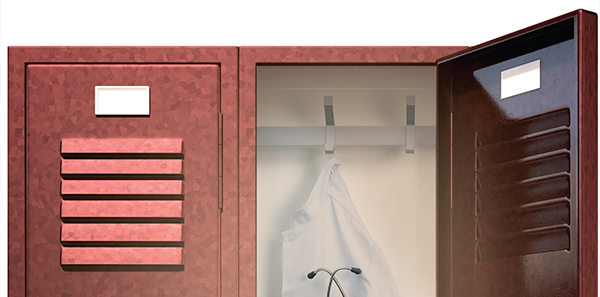
A National Guard truck had hydroplaned, veered into the median, and flipped, killing the driver and trapping the other front seat occupant. I arrived at the scene as a paramedic/police officer. We realized to save the passenger, someone had to crawl into the tight space between the overturned truck cab and a water-filled ditch while the truck was being stabilized in place. I crawled in on my back to attempt to free the passenger, who had a pelvis fracture.
Explore This Issue
ACEP Now: Vol 39 – No 05 – May 2020Once completely under the truck, my back rested on mud, with my patient directly in front of me. He was dangling upside down from a seat belt, which was exacerbating his agony from the fractures. The driver had clearly died from massive head injuries and was in my work field of view. In the tight space in which I had to work, his body was both an impediment and a distraction.
When I look back on that day now, I recall the intense feeling of responsibility I felt. I easily remember the feeling of being alone under that truck. There was no manual or training that prepared me for that day and that call. I was making decisions that would have immediate and potentially immense impacts on the health of my patient and me. Though I felt alone, I never was. My crew of other police medics, my supervisor, and rescue were all there. We had the necessary tools to make it safer, including air bags and cribbing. My life depended upon that equipment working in a far from ideal environment, slick and muddy. We adapted and we worked with what we had, and the mission was completed.
I am sharing this story because it is emblematic of the uncharted territory we are experiencing with this pandemic. It was not a part of our training. Unlike my story, there are significant issues with inadequate resources, PPE, ventilators, and testing, all of which place many at risk. As clinicians, you are not only risking your own lives doing your job but also the lives of your family, your friends, and your colleagues.
However, nobody else can do it. It is literally up to you.
Despite all this, you humble and amaze me with your creativity, perseverance, and bravery. Best practices are being developed daily, saving countless lives. You continue to show up and deliver.
Organizations like mine have been busy as well, attempting to develop protocols, equipment, and other resources to help you. We advocate and work hard to ensure you have what you need to respond. While you may feel alone, in fact, many of us stand with you and millions count on you. You might not feel it today, but it does not make it any less true. The fact remains you are at the literal bleeding edge of this response.
After nearly an hour of trying to free the guardsman from the vehicle, I was finally able to get him out by using his own pocketknife to cut his seat belt. We ended up saving his life. I was a small but visible part of that response. That day I learned the value of experience, a supportive team, ingenuity, and perseverance. It was not luck, nor was it an act of individual heroism. This is what you are doing every patient, every day, every shift. On my behalf and that of every person who will benefit from your collective and individual heroism, thank you.
Robby Frantz, MD, FACEP
President, TeamHealth West Group




One Response to “The Heavy Burden of Heroism”
June 15, 2020
James Steinman, mdGo for it! My scribe was just reminding me of the story I told when she asked some time ago about my most interesting experience in the ER. I was a third year medical student doing my surgery rotation at Hollywood queen of angels in n 1979. A man walked in with an ice pick hurried to the handle sticking out from his left eternal margin. The trauma chest surgeon was soon on the scene. We were on the elevator on the way to the OR with the patient on the gurney when the lights went out because of the thunderstorm under way outside.
I had double duty assisting the surgeon that night, holding the retractor and the flashlight.
He had his chest cracked and a few sutures with a patch in record time. I saw him walking out of the hospital the next morning.